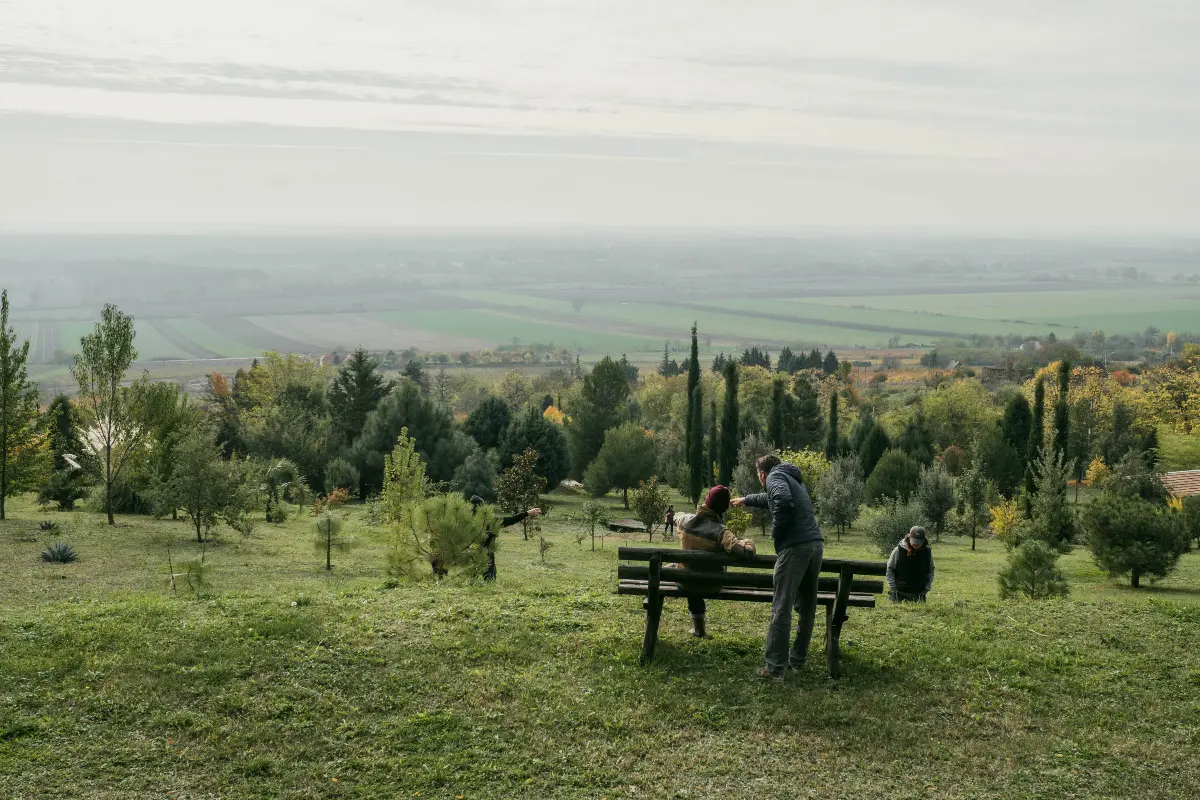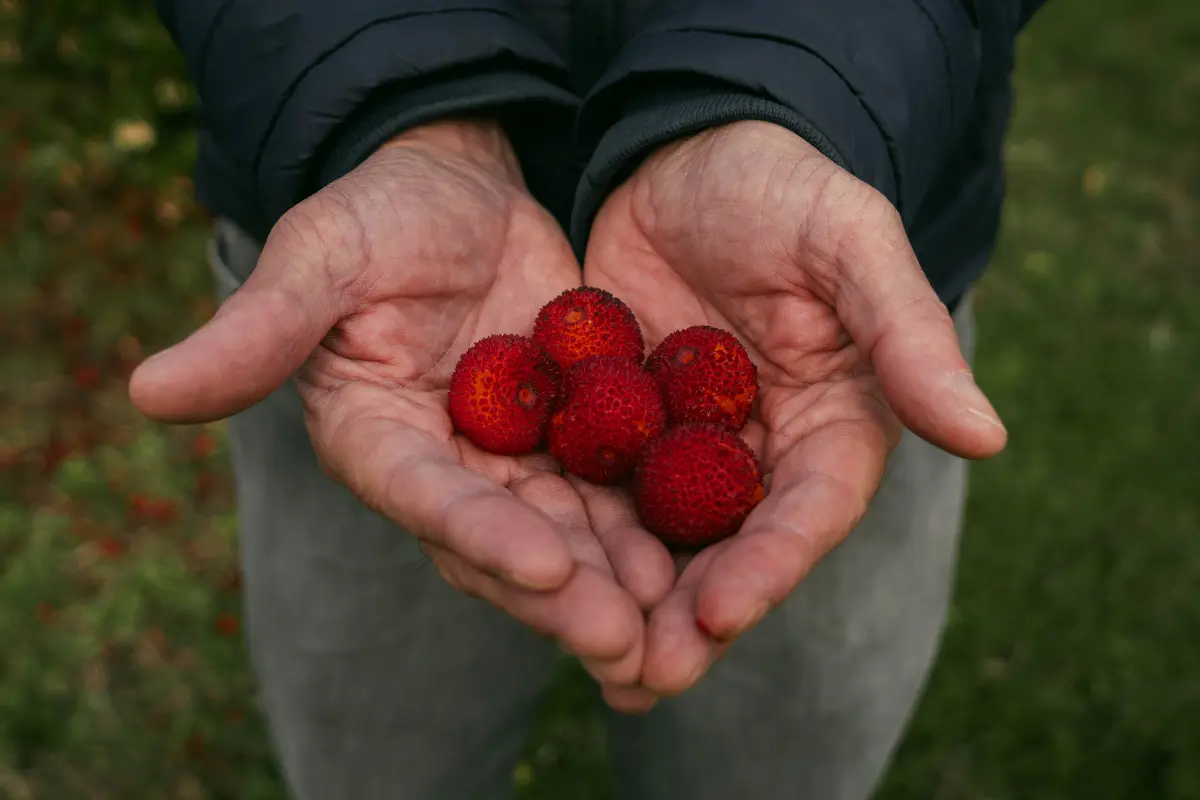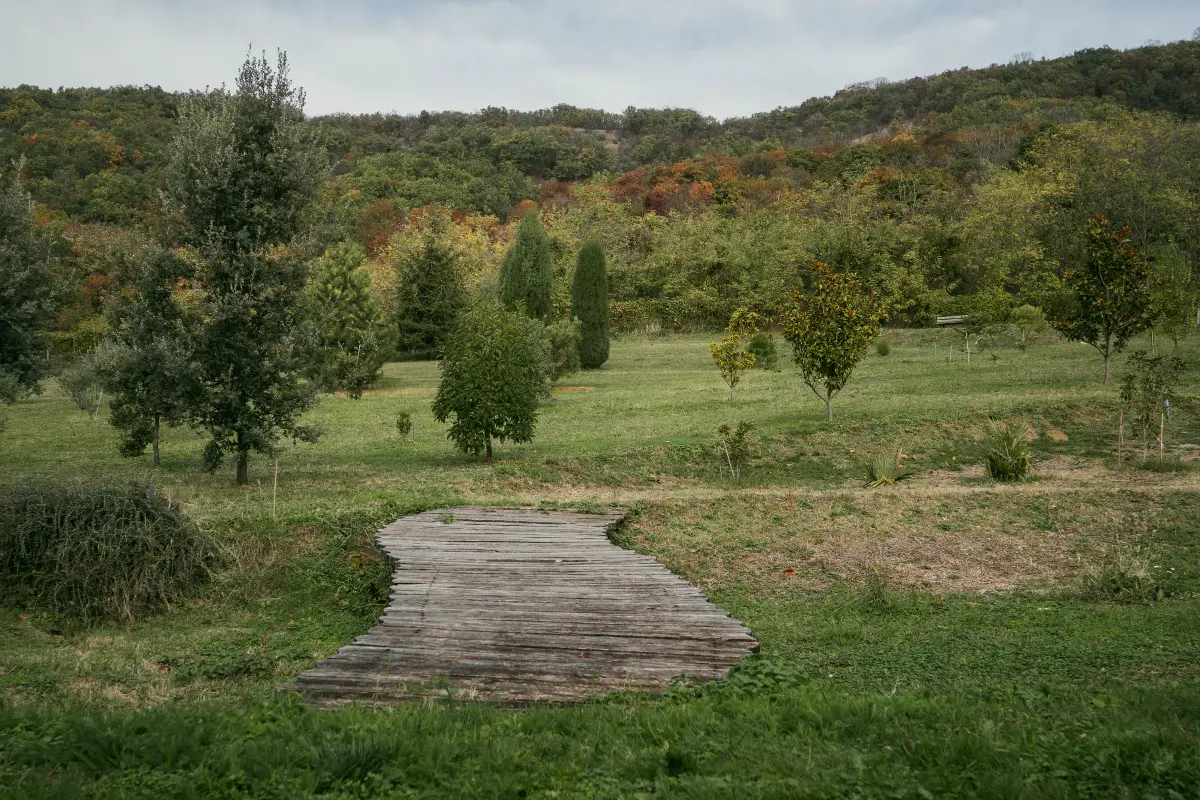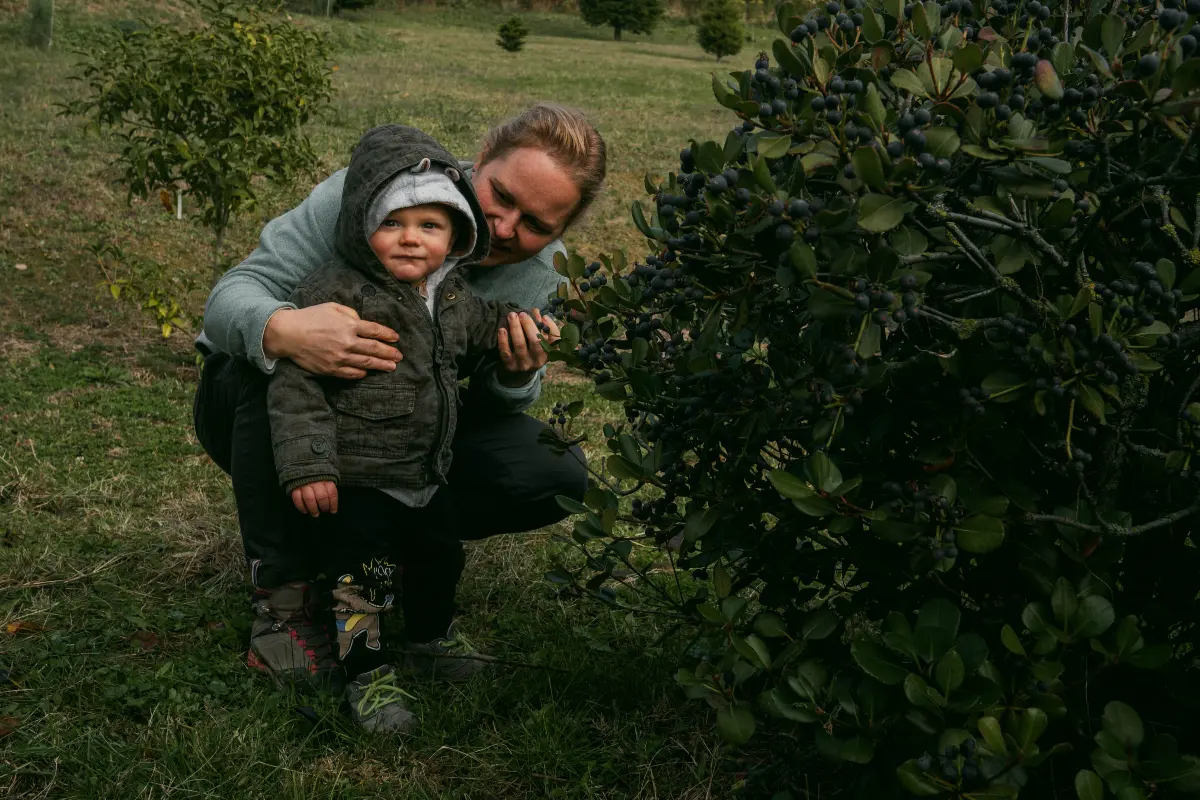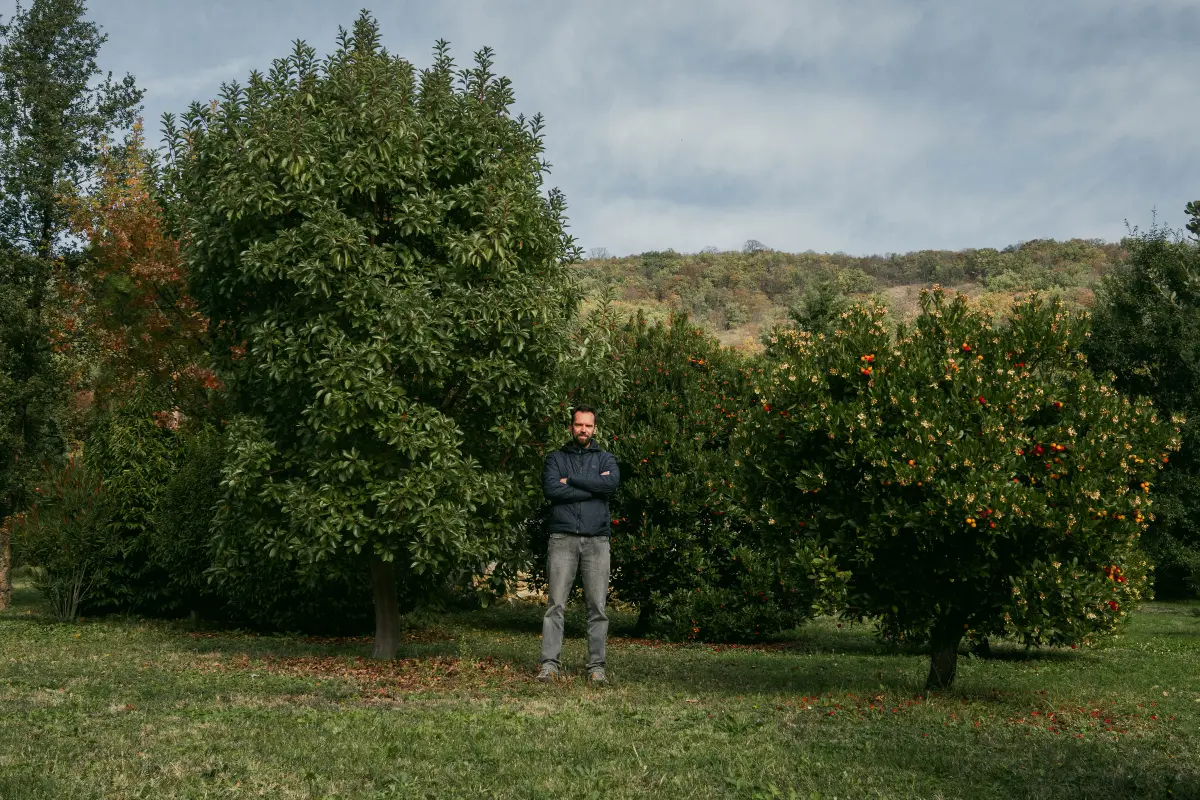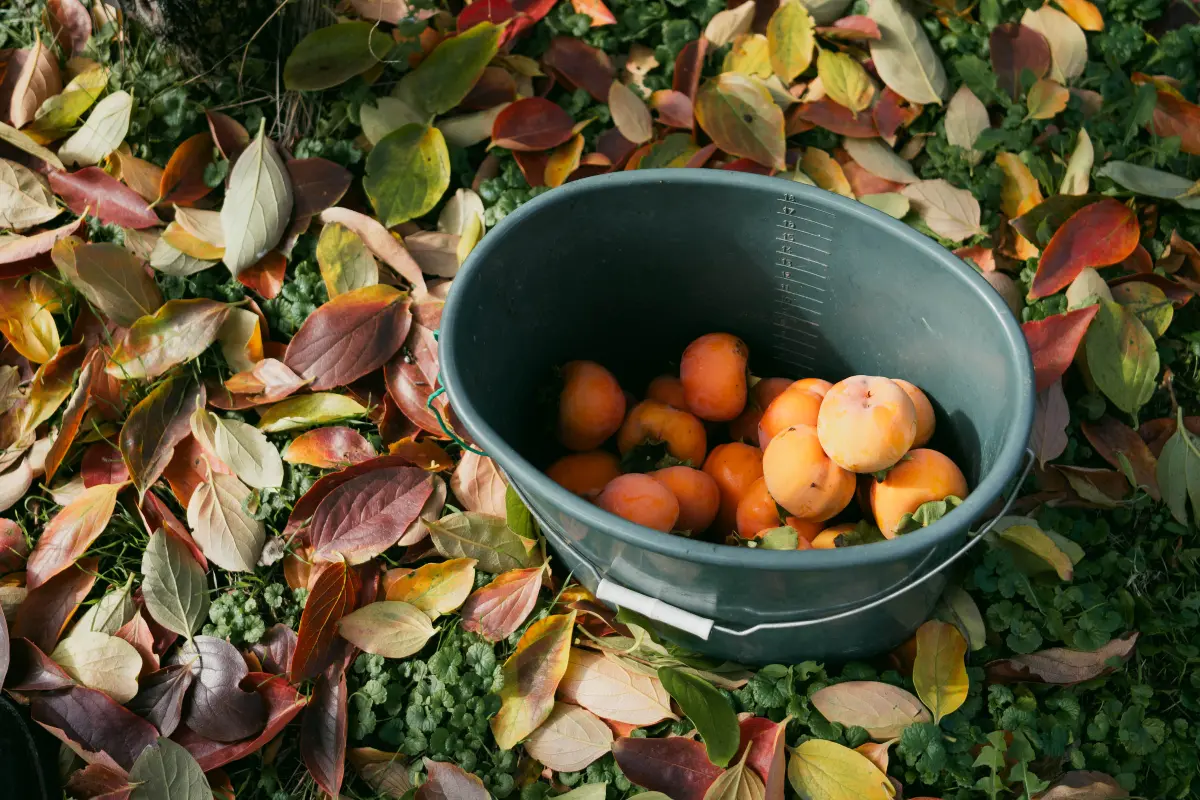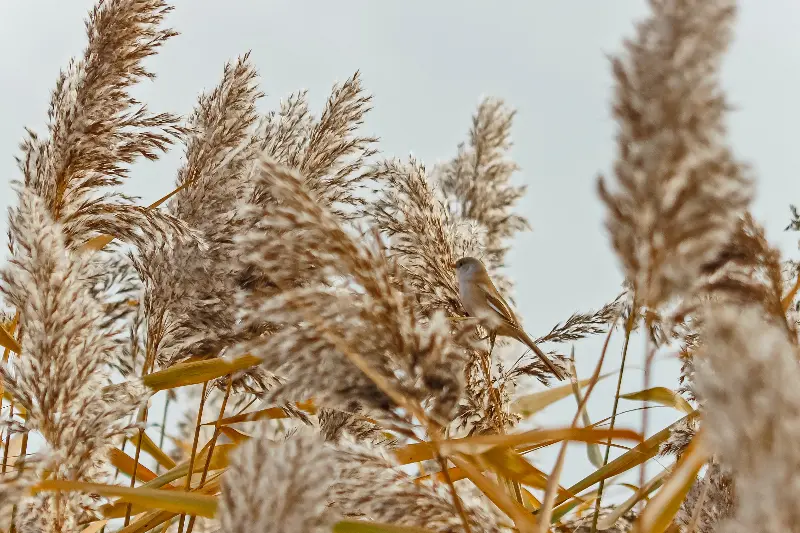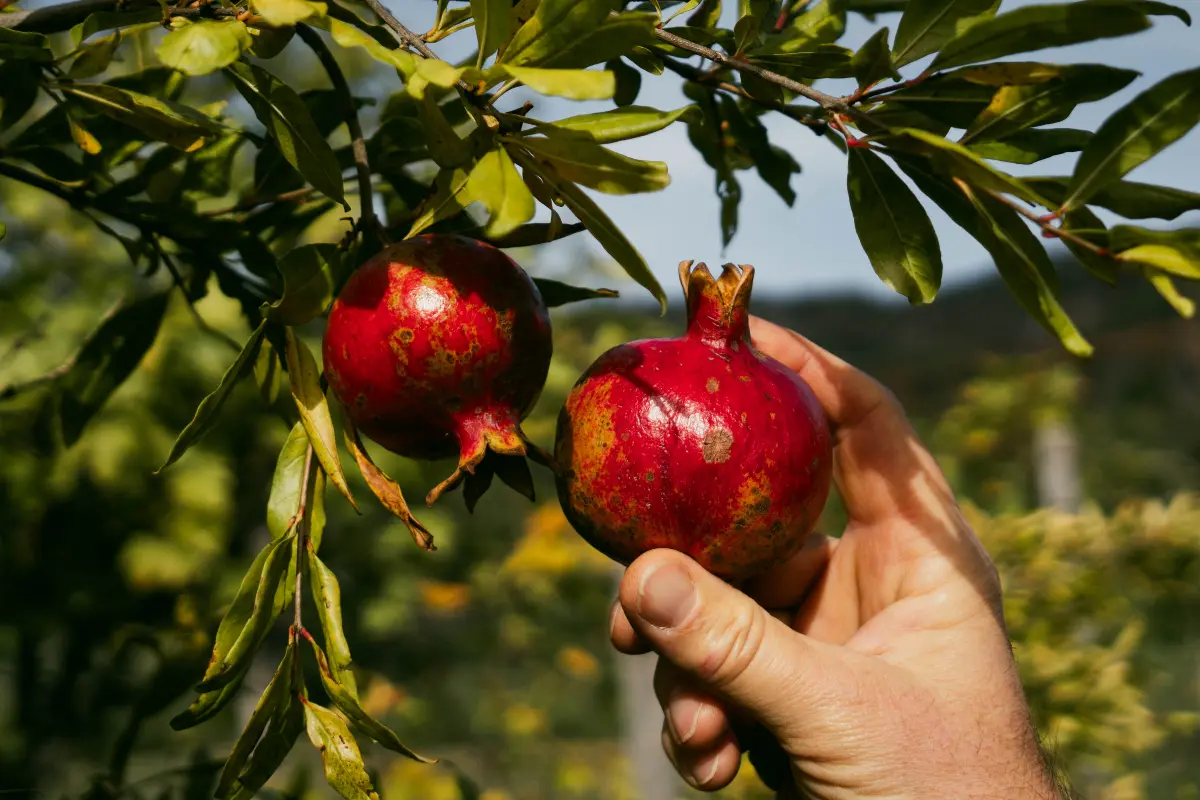
Helyszín címkék:
Pistachios, pomegranates and olive trees live in the "little Rome" of Baranya
Szabó Sára
One of the warmest spots in our country is a Mediterranean paradise
The mentioned land is located next to Máriagyűd, on a south-facing hillside surrounded by the Tenkes mountain range. The microclimate is made special by its relief conditions: on the one hand, cold air can flow easily on the steep slope of Mount Tenkes, and on the other hand, thanks to the ridge running in the west and east, the area is only open from the south and it is protected from the wind from all other directions. With its special properties, this area is classified as 8A based on the USDA climate zone system, applied worldwide, which is within the limits of the tolerance of most Mediterranean plants.
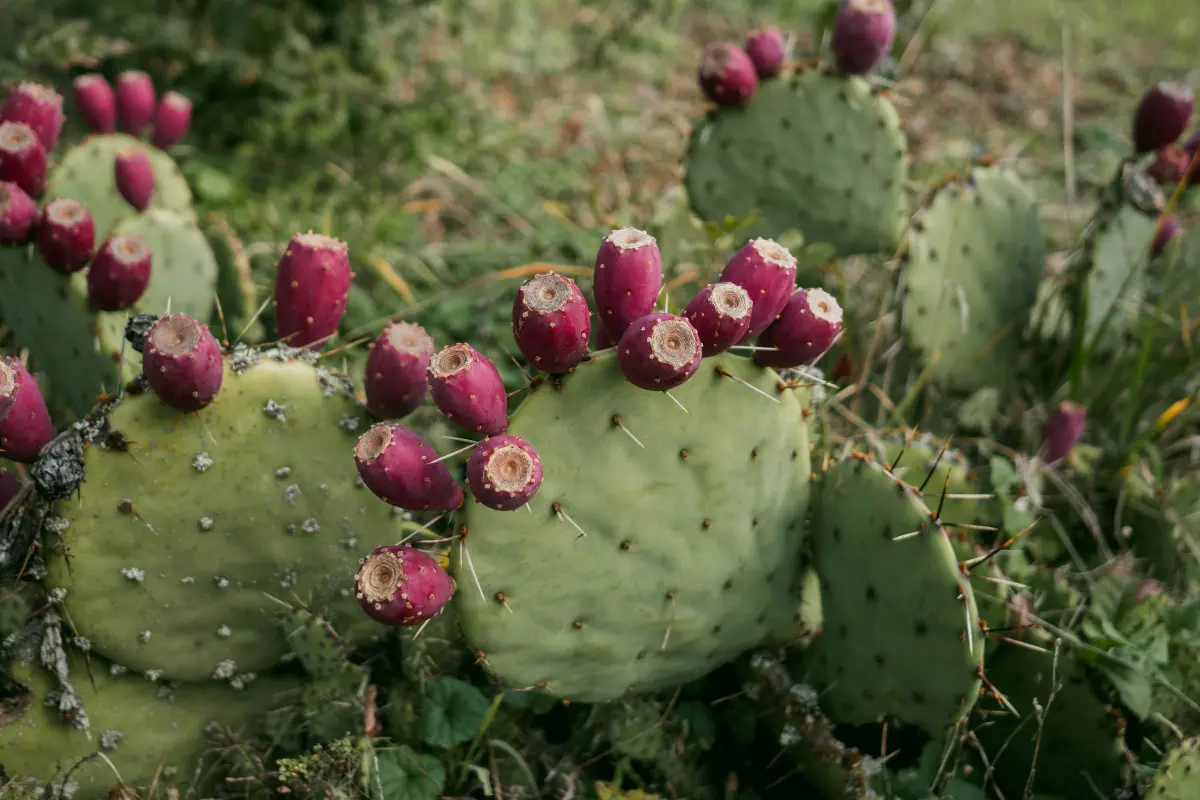
It is no coincidence that Kálmán Huber, whose PhD topic was microclimate research, and his associate, the world-travelling gardener Miklós Dlusztus, chose this area to indulge their fanatic love for plants.
The most Mediterranean collection in a romantic private arboretum
The consciously chosen plot of land is home to an exceptional collection: a unique private arboretum can be found on the 2-hectare land of Kálmán Huber. More than 400 woody species imported from more than 50 countries of the world live in the garden, these are well-controlled plants grown from original habitat seeds. The strawberry tree, the olive tree and the pistachio collection are of outstanding importance, but it is also home to the largest evergreen oak collection in Central Europe, which counts no less than 34 species. The arboretum gained its current form thanks to the researcher's field work and procurement trips conducted abroad for more than 15 years.
It is interesting that on the property of Kálmán Huber you can not only find species of the European Mediterranean climate: the arboretum has plant specialties from the Mediterranean flora of almost every continent. The arrangement of the garden is also unique: the researcher evokes habitats and geographical regions with each plot of land, so that with the difference of a few steps we can adventure through the Mediterranean flora of Europe and California, the highlands of Central and South America, and the subtropical monsoon of the Far East and Australia between species.
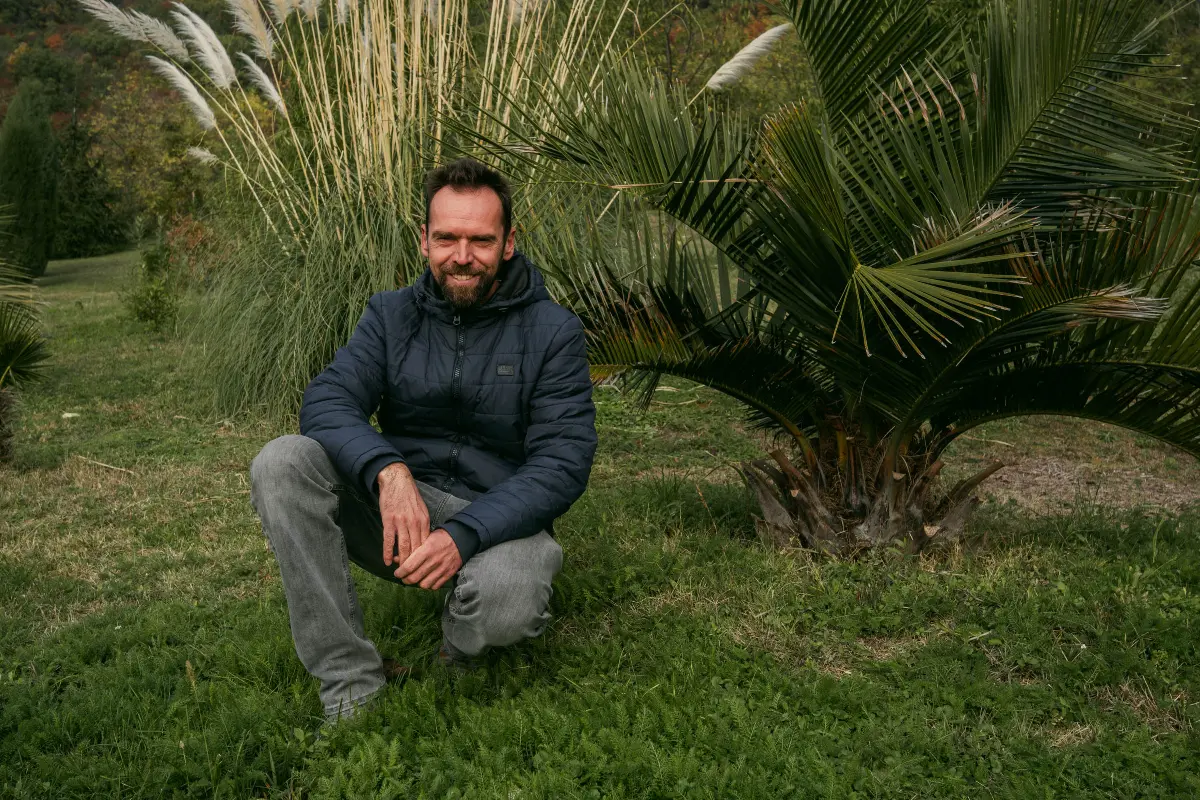
Since mostly Mediterranean plant specialties live in the arboretum, therefore, no matter when we arrive, we can encounter colours, scents and textures. After prior registration, we can take a romantic walk in the park, at the higher points of which we can see the Siklós Castle rising in the distance, and in clear weather we can even admire the Papuk Mountains in Croatia.
It is my undisclosed intention to offer guests tastings of the special fruits grown in the garden in the guest house that will be finished soon - Kálmán Huber introduces his plans. As he says, pistachios, pomegranates, western strawberry fruit, figs, kiwis grown here and dishes prepared from his own olive oil will be served on the tables. For those looking for exclusive gastronomic experiences, an additional point of interest is that you can even find French truffles in the garden, which grow at the foot of a special, round-leaved evergreen oak.
The hit fruit of the area is the pomegranate, the juicy, acidic vitamin bomb
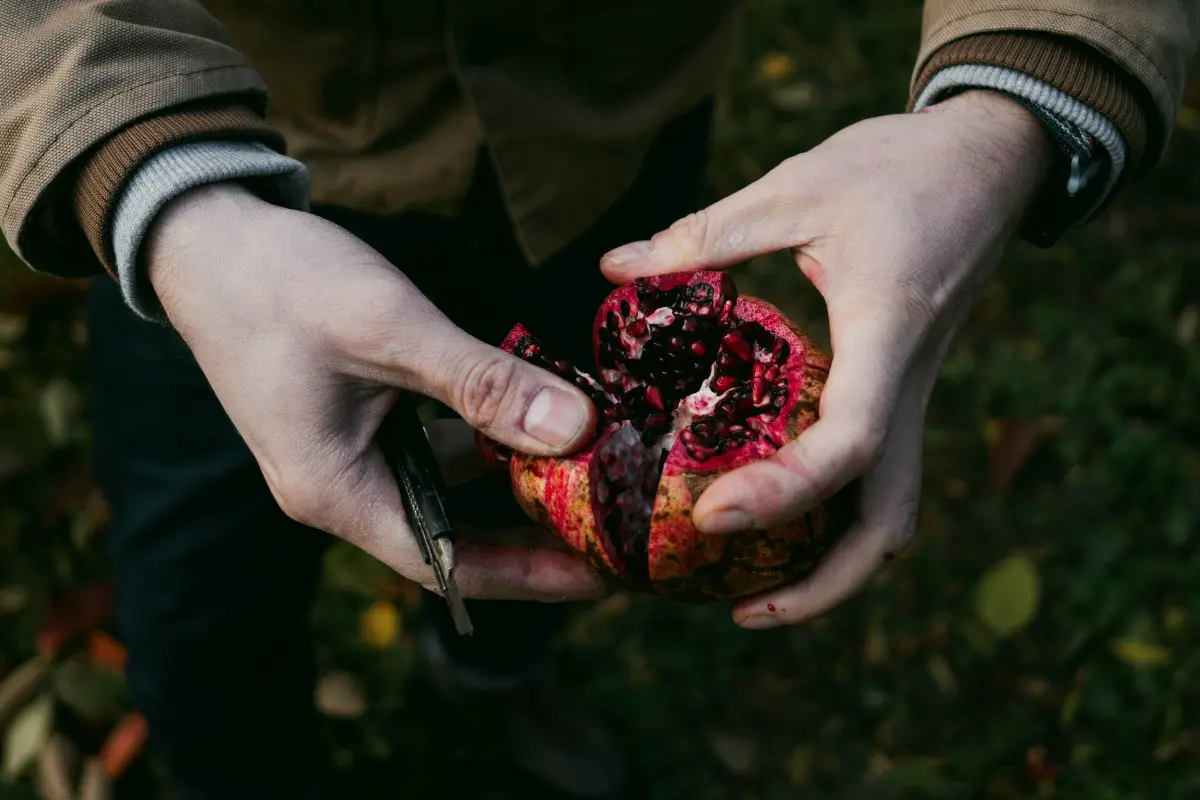
In the immediate vicinity of the arboretum is a slice of Miklós Dlusztus’s garden, where you will find nearly 500 pomegranate bushes and many other Mediterranean fruit and ornamental plants. The farmer cultivates a total of 14 hectares of speciality plants. In the horticultural area, which has a history of more than 30 years, thousands of plant species from continental and Mediterranean regions of the world have found a home, and Miklós observes their suitability for domestic conditions. The most successful, well-tested, well-developing species and varieties are then boldly recommended to Hungarian farmers, hobby gardeners and plant lovers. On his estate in Máriagyűd and Egerág, you can find pecans, pistachios, pomegranates, olive trees, Chinese dates, chestnuts, kiwi, persimmons, Amelanchier lamarckii, figs, Indian bananas, and hardier varieties of traditional fruit species (e.g. apricots, grapes, almonds, pears, etc.), but he also has a variety of exciting ornamental plants. The latest research is on the domestic production possibilities of citrus fruits, Brazilian guava (Feijoa), mango and avocado. (Lemons and papayas are already successfully grown in Hungary!)
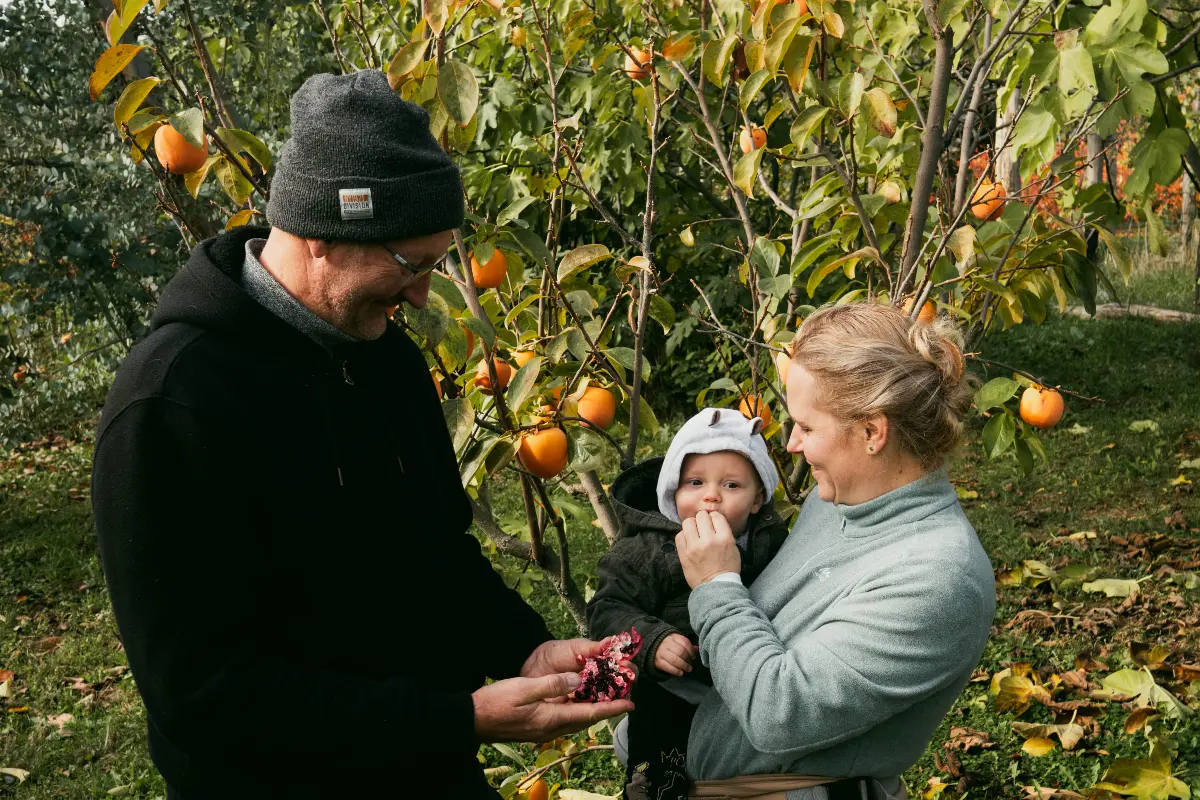
As the horticulturist says, “thanks” to climate change, hundreds of hitherto unknown fruit and other crops are providing new opportunities for Hungarian primary producers and farmers. These plant specialities can even be used to start a serious income-generating activity, as they are in many cases more tolerant than our common plants.
“I think it is important that this knowledge reaches people, so I regularly give lectures and professional talks, and I am also regularly present at the Pécs Fair, where I talk a lot about the benefits of these special varieties. I also try to provide as much information as possible on our website. Pomegranates, for example, are one of the most exciting fruits, and their gastronomic importance is outstanding, and they do not live only in Mediterranean climates. It would be worthwhile for farmers to open up to it, as there is a very strong demand for it and there is currently not a known natural enemy of it in our country. Of course, the same goes for all the other promising new plant species!” - concludes Miklós Dlusztus.
